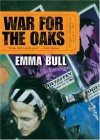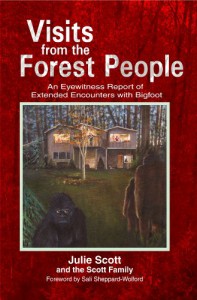Currently reading
Wolf Hall (Thomas Cromwell, #1)
250 Things You Should Know About Writing
War for the Oaks
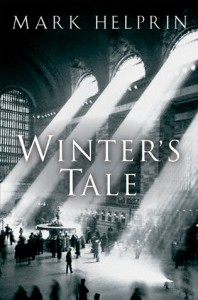 This really is gorgeous, but I can't seem to read anything right now that requires any degree of thought beyond, "Fire bad. Tree pretty." I definitely will pick this back up, perhaps once we get our first snow of the year. This really is a book that needs to be read curled up in a blanket on a wintry day with a mug of cocoa on the table next to my reading chair.
This really is gorgeous, but I can't seem to read anything right now that requires any degree of thought beyond, "Fire bad. Tree pretty." I definitely will pick this back up, perhaps once we get our first snow of the year. This really is a book that needs to be read curled up in a blanket on a wintry day with a mug of cocoa on the table next to my reading chair.
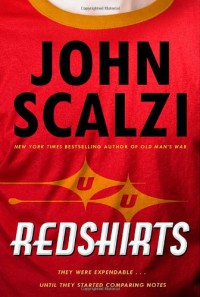 I picked this up last night before bed just intending to dip my toes into the book, but ended up reading the entire thing. I finished sometime around 2 a.m. *yawn* This was a clever, witty, brain-tickling metanarrative that pokes fun at the utter implausibility of Star Trek, but in a way that people who love the show can appreciate. I laughed a lot. The only thing that kept me from rating this five stars is that the codas at the end felt like Scalzi was carrying the joke on for too long and overexplaining it, c.f., this scene from Austin Powers, International Man of Mystery: http://youtu.be/El4tHP5HdPA
I picked this up last night before bed just intending to dip my toes into the book, but ended up reading the entire thing. I finished sometime around 2 a.m. *yawn* This was a clever, witty, brain-tickling metanarrative that pokes fun at the utter implausibility of Star Trek, but in a way that people who love the show can appreciate. I laughed a lot. The only thing that kept me from rating this five stars is that the codas at the end felt like Scalzi was carrying the joke on for too long and overexplaining it, c.f., this scene from Austin Powers, International Man of Mystery: http://youtu.be/El4tHP5HdPABut the main body of the story was chock full of awesome.
 As with the first book, it took a good 200 pages before this one gripped me, but when it did, it really did. The sex trafficking angle was a more interesting frame story -- and better integrated into the whole, I thought -- than the Wennerstrom affair and financial industry plot in the first book. I enjoyed seeing more of Salandar's world and life once she returned to Sweden (I still don't know why the whole hurricane sequence was there), and how she came to be who she is. I thought Zala's identity ended up being a bit on the soap opera side, but, okay, I'm along for the ride and eager to pick up the final book. I should maybe buy some coffee first, since I tend to have several consecutive late nights when I read these.
As with the first book, it took a good 200 pages before this one gripped me, but when it did, it really did. The sex trafficking angle was a more interesting frame story -- and better integrated into the whole, I thought -- than the Wennerstrom affair and financial industry plot in the first book. I enjoyed seeing more of Salandar's world and life once she returned to Sweden (I still don't know why the whole hurricane sequence was there), and how she came to be who she is. I thought Zala's identity ended up being a bit on the soap opera side, but, okay, I'm along for the ride and eager to pick up the final book. I should maybe buy some coffee first, since I tend to have several consecutive late nights when I read these.
 I didn't enjoy this second book in The Hunger Games series quite as much as the first. There was entirely too much time spent on the love triangle and Katniss's indecision about her feelings toward both Peeta and Gale. She's a particularly obtuse character when it comes to understanding other people, and sometimes that obtuseness felt more like a plot device than actual characterization, particularly when she was blind to the fact that other people were on her side or trying to help her.
I didn't enjoy this second book in The Hunger Games series quite as much as the first. There was entirely too much time spent on the love triangle and Katniss's indecision about her feelings toward both Peeta and Gale. She's a particularly obtuse character when it comes to understanding other people, and sometimes that obtuseness felt more like a plot device than actual characterization, particularly when she was blind to the fact that other people were on her side or trying to help her.The first half of the book was kind of dull and repetitive, mostly because of Katniss's obtuseness. But when the narrative heated up, it really heated up. I was glued to the second half as I read, and loved the way Collins raised the stakes and set up what will come in Mockingjay, which I'll be picking up immediately.
 I’m a newspaper journalist who writes about a) health care and medicine and b) politics. While I haven’t been on the actual campaign trail, I did cover visits to my area this winter by three of the four Republicans running for the presidential nomination through the primary/caucus season. So it was going to be pretty much impossible for me to read this without training a critical eye on how Grant handles the public health threat of the virus and the Masons’ coverage of Ryman’s campaign. She mostly does a good job, I think, but there were some things in the novel that I thought were a bit flawed.
I’m a newspaper journalist who writes about a) health care and medicine and b) politics. While I haven’t been on the actual campaign trail, I did cover visits to my area this winter by three of the four Republicans running for the presidential nomination through the primary/caucus season. So it was going to be pretty much impossible for me to read this without training a critical eye on how Grant handles the public health threat of the virus and the Masons’ coverage of Ryman’s campaign. She mostly does a good job, I think, but there were some things in the novel that I thought were a bit flawed. First of all, while I think she did a good job portraying the KA virus as a public health threat, I scoffed a bit at the virus being the combination of two viruses intended to be beneficial, mostly because the two viruses in question were a cure for the common cold and a cure for cancer. I think how she thought out the interaction between the two gels with things I’ve read in the field of public health (the dangerous outbreak that likely would happen if the H5N1 avian flu and 2009 H1N1 swine flu were to combine into a new strain, for example, bringing both the virulence of bird flu with the power of the swine flu). But my problem lies in the basic premise of viruses as cures for those two conditions in particular. I think the premise relies on the faulty assumption that both cancer and the “common cold” are monolithic as medical conditions, and they’re far from that. Cancer isn’t one thing and neither is the common cold, which is actually a description for the set of symptoms of a viral infection that can be caused by any number of viruses. That’s why you never get immunity to the common cold the same way you would for something like chicken pox, because it’s a multitude of viruses that are always changing. I should add the caveat that I’m not an epidemiologist, just a semi-educated lay person, but whenever Grant went into the epidemiology of the Kellis-Amberlee virus, I’d always think, “But… but…” and that would affect my ability to suspend my disbelief in the story she was telling.
I think Grant did a pretty good job with the political stuff, although that’s not what I thought I was getting into when I picked this up, and I’m weary enough of politics in the real world that I was mildly annoyed to find myself reading a book that’s mostly about a presidential campaign.
As far as the portrayal of journalism, I have some issues. First of all, I had to laugh at the thought of newspapers still being around 30 years from now. They may still exist, but they’ll be niche products for a limited audience with money and a strong sense of nostalgia, c.f., the current state of vinyl records and typewriters. I think she’s right that bloggers would be the ones to break the news about a zombie apocalypse, but that’s not because bloggers have more integrity than the so-called mainstream media, but because bloggers can and do put any and all kinds of shit out there without verifying it first. Newspapers can’t do that, not without risking lawsuits we can’t afford to lose. So someone could call me tomorrow and say their dead brother-in-law got up and started walking around and trying to eat people, but without solid, hard proof I’m not running that story, because dead people don’t get up and start walking around. I’m not running a story that flies in the face of everything we think we know about the world without proof, and face it folks, I’ve seen enough Fact or Fiction on the SyFy Channel to know that photos and videos aren’t proof these days unless I take them myself. Anyone can doctor a photo or CGI a video. So unless I see with my own eyes – and corroboration – the mayor drop dead from a heart attack in the middle of a live city council meeting, then get up and bite the city manager, no story. But, hey, of some blog wants to write that story about the guy’s brother-in-law, what’s to stop them?
While Grant extrapolates that bloggers telling the story of the KA outbreak first leads to the rise of blogs as a more trusted and ethical means of getting news, what I see already happening is that blogs muddy the waters and contribute to an inability by the general public to tell wheat from chaff. It’s like that car insurance commercial where the girl believes everything is true on the internet because she read that on the internet. Now, I’m not saying that all traditional media is wheat and all blogs are chaff. Far from it. There’s a lot of good and bad in both. What I’m saying is that a lot of people can’t tell the good from the bad, and can’t discern the difference between opinion and fact or rumor and fact, and that’s a problem for us as a society because the proliferation of chaff is tainting the wheat as the lowest common denominator just keeps sinking with no bottom in sight.
It disturbed me that Georgia is supposed to be the model of factual, objective, ethical journalism in this new post-apocalyptic United States, mostly because of the way she metaphorically climbs right into bed with Ryman and uses her reporting to boost his campaign. That’s called PR, honey, not news. But Georgia mostly seems to be a Mary Sue character anyway, in that as a reader I’m constantly told how awesome she is and how she’s, like, the bestest reporter in the WORLD, but I really see that until toward the end when she’s willing to take big risks to get an important story told. Before that, though, I’m just kind of like, “STFU about how awesome you are, you arrogant fucking kid.”
Let’s see – another pretty big flaw for me is that the book read more like it should be taking place five years from now instead of 30 years. There’s some extrapolation of current technology, but again I think this is stuff we’ll be seeing within five years, not three decades. I kept thinking about the difference between now and what was out there in 1982, and shaking my head that Grant’s characters are still using cell phones and MP3 recorders and that the internet seems to still be the same internet we’re using now. Then there are the pop culture references, which seem to be stuck in the late ‘90s with Buffy the Vampire Slayer and Steve “The Crocodile Hunter” Irwin. Grant goes to great pains to create a society that’s still running, and yet technology and pop culture seem to mostly be stagnant, or at least their evolution vastly decelerated from what we’re currently experiencing. I mean, George uses a PDA, for cripe’s sake. It may be a teensy one mounted on a watch, but who even says “PDA” anymore now in 2012, much less in 2040? And I’d like to have seen more about just how society kept running given that people more or less bunkered down in their homes. How did businesses keep running? Who kept the lights on and the roads maintained and the potable water potable?
Since my word processor is telling me I’ve now written more than 1,200 words of complaints about this book, I guess I ought to wrap this up. My apologies and heartfelt gratitude to anyone who made it this far into the review. It really was an enjoyable read with an engaging plot, and I’ll probably pick up the second book sometime soon to read the continued story. My complaints are really fairly small, I think. Overall, it’s a good thriller and I’d recommend it to people who enjoy zombies and presidential politics. It would make a good movie, and it did make good motivational reading on the treadmill.
 I've been reflecting a lot on the title of this book as I read it, because not only does it describe the central plot, but it's also a metaphor for something I think is dissatisfying about this series -- the characters are changeless. They move around in the plot, but none of them are changed by or grow from their experiences (with the possible and surprising exception of Ivy who takes a tremendous risk in the end), and that's one thing that holds these books back from being something more than just fun fluff. They are fun and fluffy, and there's nothing wrong with that, but I feel there's some degree of wasted potential here. Carriger has a wonderful, vivid imagination and her vision of an alternate steampunk Britain where werewolves, vampires and ghosts are commonplace mostly is delightful.
I've been reflecting a lot on the title of this book as I read it, because not only does it describe the central plot, but it's also a metaphor for something I think is dissatisfying about this series -- the characters are changeless. They move around in the plot, but none of them are changed by or grow from their experiences (with the possible and surprising exception of Ivy who takes a tremendous risk in the end), and that's one thing that holds these books back from being something more than just fun fluff. They are fun and fluffy, and there's nothing wrong with that, but I feel there's some degree of wasted potential here. Carriger has a wonderful, vivid imagination and her vision of an alternate steampunk Britain where werewolves, vampires and ghosts are commonplace mostly is delightful. The writing suffers from some basic craft problems, such as the phonetic spelling of dialogue. I rolled my eyes every time a character with a supposed French accent said "ze" instead of "the" for example. This was compounded by the utterly cliched way she wrote dialogue for the Scottish characters. Good dialogue should give the reader the flavor of an accent or dialect without beating them over the head with it, but Carriger beats us over the head like Alexia wielding her parasol.
The book also suffered from the absence of Lord Maccon for a good chunk of it. Alexia is priggish and pretty insufferable, but she becomes immensely more tolerable -- likable even -- when trading barbs with her husband. The two crackle on the page when together (although I could do without Lord Maccon trying to have sex with Alexia every minute of every day), but I just kind of want to smack Alexia when she's on her own, particularly her constant derision of her so-called best friend Ivy. Ivy wears the wrong thing, loves the wrong person. Alexia does nothing but find fault with Ivy. It makes me wonder why the two are friends at all. It doesn't help that Ivy is painted with exactly one brushstroke as a character -- her fashion choices. I consider this another failing of craft in the work, as a number of characters seem to suffer from this. Carriger seems to have seized on the old chestnut of giving characters a unique attribute to set them apart but doesn't seem to understand that whatever that attribute is can't stand alone but rather should add dimension. So we get characters who are defined entirely by what they wear and not by much else. I have a glimmer of hope for Ivy in her choice to follow her heart and marry Tunstell despite the likelihood that it will ruin her socially. I hope this is the first step toward her becoming her own person and not just a wearer of bad hats.
I will say that the head-hopping was much less distracting in this book than in Soulless.
Despite my criticisms, I had a fun time reading. Carriger is an imaginative writer who can spin a good yarn, and I likely will pick up the next book to see what happens next in this rather entertaining alternate version of Victorian London.
 As I read this novel, I couldn’t help but compare it to my experience reading Lullaby a few summers ago. Lullaby was my first Palahniuk novel and I remember sitting poolside with my paperback and feeling that thrilling buzz of reading something new and different. Lullaby was grotesque and absurd, but at its core there was something deeply and beautifully human, and that hit all the right buttons for me as a reader.
As I read this novel, I couldn’t help but compare it to my experience reading Lullaby a few summers ago. Lullaby was my first Palahniuk novel and I remember sitting poolside with my paperback and feeling that thrilling buzz of reading something new and different. Lullaby was grotesque and absurd, but at its core there was something deeply and beautifully human, and that hit all the right buttons for me as a reader.Subsequent Palahniuk reads have been hit-or-miss for me, and it all comes down to whether the novel has that thread at its center that illuminates something about the human condition. The protagonist of Choke was pretty reprehensible in many ways, but there was poignancy in these characters’ stories that grabbed me and left me feeling a sense of real catharsis by the end of the book.
I take it as a given that a Palahniuk novel is going to be gimmicky. Gimmicky is his thing. I get that. In Tell-All, for example, I thought the gimmick was used to good thematic effect and shored up the story Palahniuk was telling. On the flip side, Snuff and Pygmy were all gimmick and no real substance, I thought.
Which brings me to Damned, the tale of 13-year-old Madison Spencer and how she came to be consigned to Hell. For at least the first half of the novel, I thought I was in Snuff or Pygmy territory. It seemed that Palahniuk was doing exactly what so many detractors have complained of – writing something ridiculous and grotesque and shocking merely for the sake of being ridiculous and grotesque and shocking. His version of Hell with its topography of disgusting bodily fluids bored me, as did what seemed yet another critique of Hollywood culture in the form of young Madison’s movie star and billionaire parents. But because I bought the book – in hard cover, no less – I kept reading and finally my persistence started to pay off when the novel really began to explore Madison’s personal story, which was much more compelling in its self-deceit and tragedy than what had come before. Here were the flashes of the Palahniuk I had come to love in other books, but ultimately I wanted more of that and fewer mounds of discarded fingernail clippings and lakes of aborted fetuses. The plot was oddly picaresque with no smooth transition from episode to episode. In one moment, Madison is taming a giant naked demoness and the next she’s telemarketing from a call center in Hell HQ. She goes on a rampage taking down such historical villains as Hitler, Elizabeth Bathory and Genghis Khan, and leads an army to the gates of Satan’s center of power … and then she’s telemarketing again.
Palahniuk throws in a metanarrative twist that questions Madison’s very existence and makes the novel thematically about identity and self-determination, but I felt like the first half and the second half were almost two different books, and I liked the second one better. Then he leaves it on a cliffhanger, which just made me want to throw the book at the wall.
As a novel, Damned has a lot of flaws. There are some bits here of the things Palahniuk does so well, but perhaps not enough to counterbalance what seem for Palahniuk very safe choices as a writer at this point – the gimmicks, the descriptions and events included solely for shock value. He cloaks himself in the grotesque, but his work is so much stronger when he lets real emotion flow onto the page.
 I might have to read it just because of this:
I might have to read it just because of this:http://electricliterature.com/blog/2012/07/03/celebrity-book-review-adrien-brody-on-mens-fiction/?utm_source=rss&utm_medium=rss&utm_campaign=celebrity-book-review-adrien-brody-on-mens-fiction
 This book had a lot of flaws (The headhopping. My god, the headhopping.) but in the end was an enjoyable romp through an alternative paranormal Victorian London. The characters mostly were fun, although I found the protagonist exceedingly judgmental and fairly annoying until all of the kissing started. It's really the core romance that makes the book. I usually roll my eyes when a male and female hate each other only to discover no, they really love each other. It seems such a romance, and in particular romantic comedy, cliche. I've actually liked all of the people I've ever fallen in love with. But it kind of works here, mostly because Carriger knows how to write a kissing scene. I could have read an entire book of Alexia and Connall kissing (although I found the final consummation of their relationship pretty silly). I liked it enough that I'll pick up the next one.
This book had a lot of flaws (The headhopping. My god, the headhopping.) but in the end was an enjoyable romp through an alternative paranormal Victorian London. The characters mostly were fun, although I found the protagonist exceedingly judgmental and fairly annoying until all of the kissing started. It's really the core romance that makes the book. I usually roll my eyes when a male and female hate each other only to discover no, they really love each other. It seems such a romance, and in particular romantic comedy, cliche. I've actually liked all of the people I've ever fallen in love with. But it kind of works here, mostly because Carriger knows how to write a kissing scene. I could have read an entire book of Alexia and Connall kissing (although I found the final consummation of their relationship pretty silly). I liked it enough that I'll pick up the next one.
 It definitely feels like things are coming to a close. Sookie and Eric's relationship is playing out the way it always had to. I'll be curious to see how it all wraps up.
It definitely feels like things are coming to a close. Sookie and Eric's relationship is playing out the way it always had to. I'll be curious to see how it all wraps up.
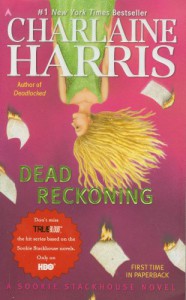 The peril of reading too many of these in rapid sequence is that I can't keep track of what happened in which book. It's safe to say the book contained arcane vampire politics, fae being creepy, werewolves jockeying for position in the pack, someone trying to kill Sookie and/or ruin her life and assorted hot, supernatural men lusting after her. Kind of like a nice bag of hot, buttered movie theater popcorn -- I just need to enjoy it at the time. I don't really need to remember it later.
The peril of reading too many of these in rapid sequence is that I can't keep track of what happened in which book. It's safe to say the book contained arcane vampire politics, fae being creepy, werewolves jockeying for position in the pack, someone trying to kill Sookie and/or ruin her life and assorted hot, supernatural men lusting after her. Kind of like a nice bag of hot, buttered movie theater popcorn -- I just need to enjoy it at the time. I don't really need to remember it later.
 Another enjoyable read. The plot, such as it was, meandered, but I liked the various elements. The resolutions of the were and fae-in-the-woods plots felt a bit deus ex machina since the culprits were characters we either hadn't seen at all in this book or had seen very little of. Unlike some reviewers, I was intrigued by the Alexei Romanov story and loved the moment at the end with Sookie's fae cousins. Looking forward to reading the next one as soon as it arrives from Amazon.
Another enjoyable read. The plot, such as it was, meandered, but I liked the various elements. The resolutions of the were and fae-in-the-woods plots felt a bit deus ex machina since the culprits were characters we either hadn't seen at all in this book or had seen very little of. Unlike some reviewers, I was intrigued by the Alexei Romanov story and loved the moment at the end with Sookie's fae cousins. Looking forward to reading the next one as soon as it arrives from Amazon.Oh, but Charlaine Harris really should stop trying to write bedroom talk. It's just ... awkward.


